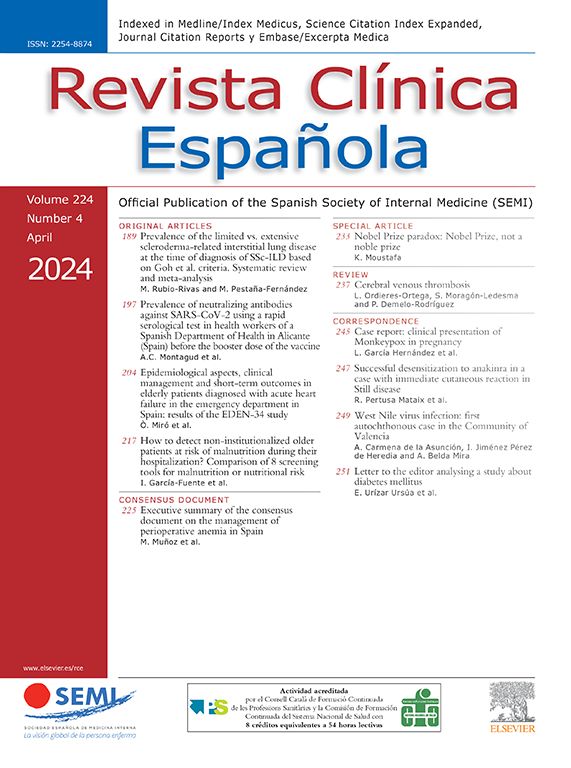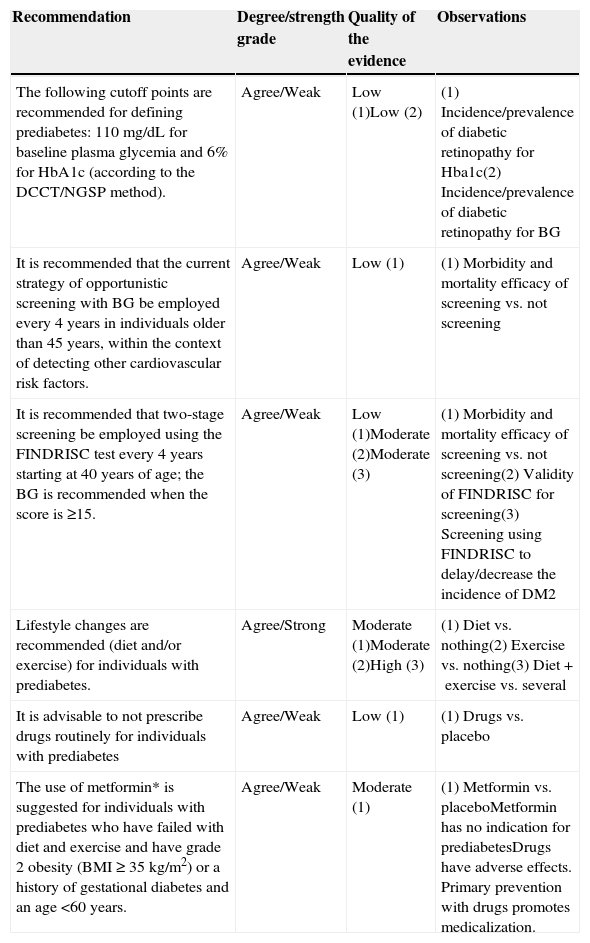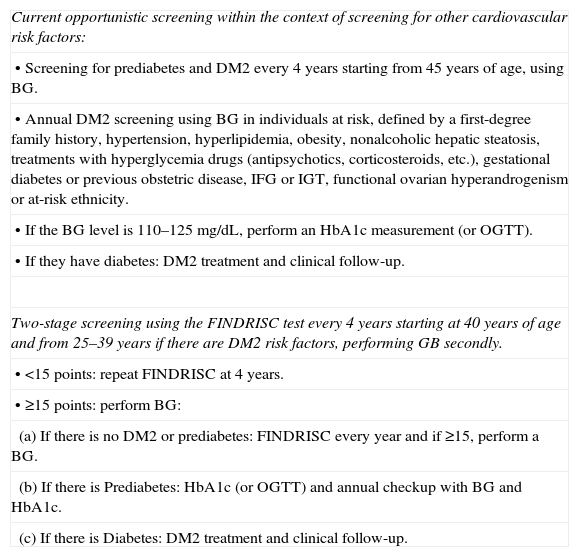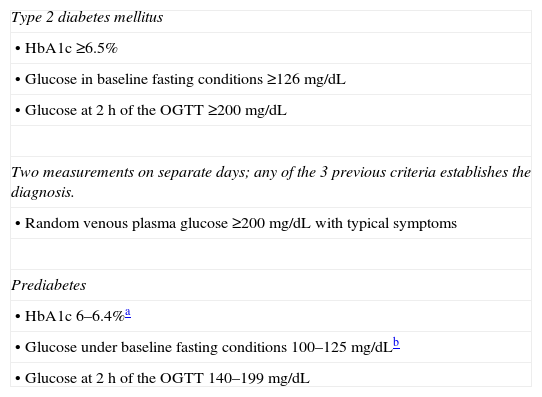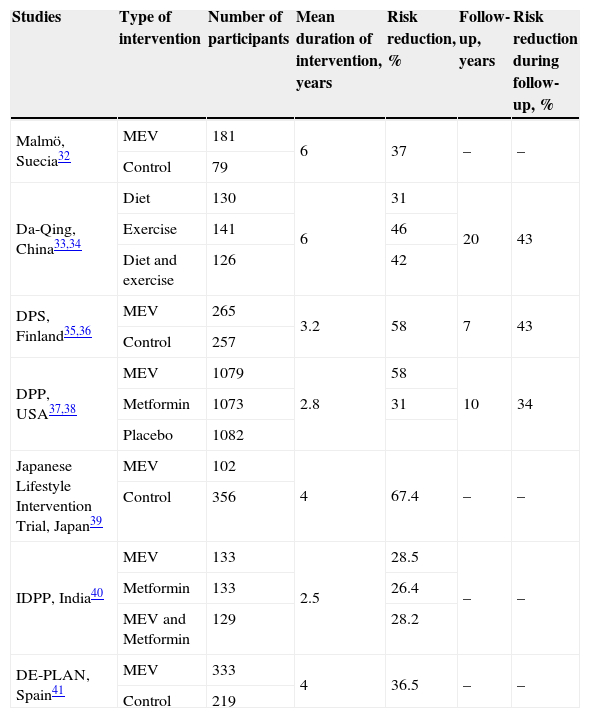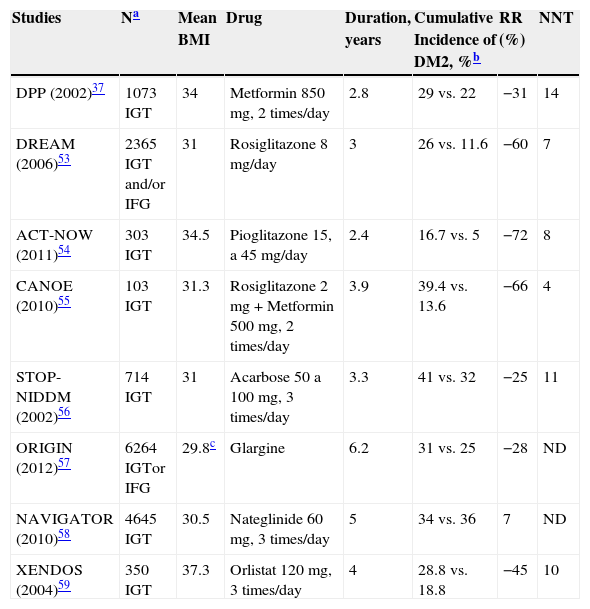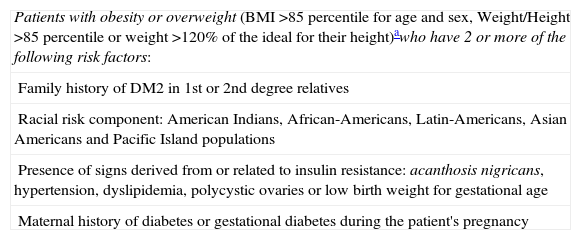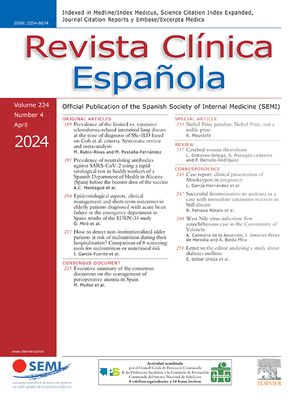In Spain, according to the Di@bet.es study, 13.8% of the adult population suffers from diabetes and 14.8% from some form of prediabetes (impaired glucose tolerance, impaired fasting glucose or both). Since early detection of prediabetes can facilitate the implementation of therapeutic measures to prevent its progression to diabetes, we believe that preventive strategies in primary care and specialized clinical settings should be agreed. Screening for diabetes and prediabetes using a specific questionnaire (FINDRISC) and/or the measurement of fasting plasma glucose in high risk patients leads to detecting patients at risk of developing diabetes and it is necessary to consider how they should be managed. The intervention in lifestyle can reduce the progression to diabetes and reverse a prediabetic state to normal and is a cost-effective intervention. Some drugs, such as metformin, have also been shown to be effective in reducing the progression of diabetes but are not superior to non-pharmacological interventions. Finally, an improvement in some cardiovascular risk factors has been observed although there is no strong evidence supporting the effectiveness of screening in terms of morbidity and mortality.
The Consensus and Clinical Guidelines Working Group of the Spanish Diabetes Society has issued some recommendations that have been agreed by the Spanish Society of Endocrinology and Nutrition, Spanish Society of Pediatric Endocrinology, Spanish Society of Community Pharmacy, Spanish Society of Family and Community Medicine, Spanish Society of General Practitioners, Spanish Society of Primary Care Physicians, Spanish Society of Internal Medicine Association Community Nursing and Red Group Study of Diabetes in Primary Care.
En España, según datos del estudio Di@bet.es, un 13,8% de la población adulta padece diabetes y un 14,8% algún tipo de prediabetes (intolerancia a la glucosa, glucemia basal alterada o ambas). Puesto que la detección precoz de la prediabetes puede facilitar la puesta en marcha de medidas terapéuticas que eviten su progresión a diabetes, consideramos que las estrategias de prevención en las consultas de atención primaria y especializada deberían consensuarse. La detección de diabetes y prediabetes mediante un cuestionario específico (test de FINDRISC) y/o la determinación de la glucemia basal en pacientes de riesgo permiten detectar los pacientes con riesgo de desarrollar la enfermedad y es necesario considerar cómo debe ser su manejo clínico. La intervención sobre los estilos de vida puede reducir la progresión a diabetes o hacer retroceder un estado prediabético a la normalidad y es una intervención coste-efectiva. Algunos fármacos, como la metformina, también se han mostrado eficaces en reducir la progresión a diabetes aunque no son superiores a las intervenciones no farmacológicas. Finalmente, aunque no hay pruebas sólidas que apoyen la eficacia del cribado en términos de morbimortalidad, sí que se ha observado una mejora de los factores de riesgo cardiovascular.
El Grupo de Trabajo de Consensos y Guías Clínicas de la Sociedad Española de Diabetes, ha elaborado unas recomendaciones que han sido consensuadas con la Sociedad Española de Endocrinología y Nutrición, la Sociedad Española de Endocrinología Pediátrica, la Sociedad Española de Farmacia Comunitaria, la Sociedad Española de Medicina Familiar y Comunitaria, la Sociedad Española de Médicos Generales, la Sociedad Española de Médicos de Atención Primaria, la Sociedad Española de Medicina Interna y la Asociación de Enfermería Comunitaria y la Red de Grupos de Estudio de la Diabetes en Atención Primaria.
Article
Diríjase desde aquí a la web de la >>>FESEMI<<< e inicie sesión mediante el formulario que se encuentra en la barra superior, pulsando sobre el candado.

Una vez autentificado, en la misma web de FESEMI, en el menú superior, elija la opción deseada.

>>>FESEMI<<<

